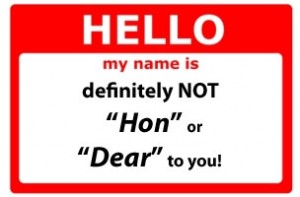 Communicating with others – our wishes, our desires, our irritations and annoyances – should be easy, right? I mean, just spit out what you need to say to the other person and you should be easily understood – what’s so hard about that?
Communicating with others – our wishes, our desires, our irritations and annoyances – should be easy, right? I mean, just spit out what you need to say to the other person and you should be easily understood – what’s so hard about that?
We can all talk the same language, yet communicating with others is our biggest problem, from effecting our day-to-day happiness point of view. We can be having a perfectly lovely day, then bam! – A communication irritation or blowup happens, and the lovely day is ruined. It could be an irritation in the form of a co-worker, or a boss, or a sales person, or a moody teen, or a meddling in-law, or an unkind remark from a friend.
There are so many interaction stumbles and landmines in getting through a day safely. And when something bad communication-wise happens, we should just brush it off as not our problem, but instead we make it our problem by blowing it up in our mind, ruminating on what happened, ruining our own day when the mind holds on and won’t let it go, replaying the interaction over and over.
Or there are the big ongoing problems that more than ruin a day, they can ruin years when unaddressed. You know what I mean – that boss (bad bosses are the #1 complaint of employees) that is totally inept in managing people and you swear he dislikes you more than the others…
Or that mother-in-law that picks and picks and won’t leave it alone, because you never measure up as good enough for her precious. And you never will.
Then there’s that neighbor/co-worker/”friend” who annoys you plenty, yet you suffer with the annoyances because you just can’t seem to confront a personality clash that won’t change and so you try to avoid the person, and stay annoyed with each interaction.
Communication problems are a big impediment to life’s happiness. And also a big impediment to success, as having good communication skills are noted to be critical to being promoted at work. All leaders attribute their success to communication skills as top of the list.
So what’s the problem? Why won’t you simply address the person directly, explain the issue, and make the problem go away? Well, here’s the initial problem – most people are nonconfrontational; they hate to mention something unpleasant, feeling that their happiness isn’t as important as keeping the peace with the other person. So they say nothing and let the situation fester, rather than bothering the other person with something perhaps trivial or foolish. But is it really trivial? Not if it bothers you greatly, it isn’t.
Another problem with problems is that many won’t ask for needed help – asking may be perceived as taking away from self-esteem. They feel like they should know how to do fix the situation on their own and don’t want to appear stupid to the other person by requesting help.
Then there are the stubbornly independent souls in the world who want to take care of things themselves. Since no one else has better ideas then them, they refuse any offered help and never ask. Besides, others may take that condescending tone, belittling the request as ridiculous, which is something they couldn’t bear.
How about when you notice someone with a communication problem and find that you simply have to offer your insightful advice, without being asked for it? Not a good idea, since unsolicited advice tends to make the other person defensive, which results in self-protection measures, i.e. putting the blinders on. “What problem? I think you’re mistaken and you should keep your opinions to yourself!”
Or the alternative reaction to hearing about an unsuspected problem is: “What did I do wrong? What’s wrong with me?” When perhaps it’s not you at all, it’s the other person, it’s circumstances, it’s a misunderstanding – but still the failure is internalized when pointed out.
What to do, what to do? While there is no single answer, since every person is different, making each situation unique, still there are some steps that everyone can do to help resolve communication problems:
- Mentally rehearse in advance what you want to say and the potential responses.
- Pick a good time to “chat about something” (language is important to not get defenses up).
- Use a calm tone (and maintain it no matter how upset the situation makes you).
- Make a reasonable request for an immediate first step in changing the behavior.
- Include a single light touch with your hand when you talk to the person.
The power of the touch generates an experiential sympathetic reaction which supports helping out; we’re all human and are all susceptible to this phenomena.
Try it and report back how it worked for you.









